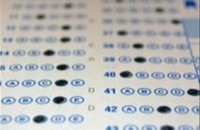
Link: Fairfax County considers creating virtual high school
Discussion of proposed virtual high school and the potential benefits claimed by some.
In the Washington Post article below, the following sentence stands out: “A singular failure of the traditional teacher compensation system has been the inability to differentiate between those who do a good job and those who don’t.”
The District’s best teachers finally get their due
Friday, September 24, 2010; A20
AS D.C. SCHOOLS developed a rigorous evaluation system, attention focused on the teachers who were fired. But others have been judged excellent at their profession and, for the first time, are being rewarded accordingly under an individual pay-for-performance system that is viewed as the most ambitious in American public education.
In the first year of the IMPACT system, 662 teachers, or 16 percent of the District’s teaching force, were rated highly effective. They are teachers such as Eric Bethel, who was able to lift the test scores of his fifth-graders at Marie Reed, and Roaenetta Mayes Browne, who, as a special-education teacher at Sharpe Health, expects and gets the most from children with challenging health problems. Data from the school system show that the highly effective teachers range across all experience levels. For instance, teachers with 20 or more years of experience make up 19 percent of the overall teaching force and 23 percent of the highly effective teacher corps.
The school system recently hosted a reception at Union Station honoring the teachers, who, along with outstanding charter school teachers, will be invited to “A Standing Ovation for D.C. Teachers,” which is being produced by George Stevens Jr. on Nov. 1 at the Kennedy Center. Recognition also comes in more pay and unprecedented bonuses — ranging from $3,000 to $25,000 — under the performance pay system developed in collaboration with the Washington Teachers’ Union. Bigger bonuses go to teachers of high-need subjects or in schools with students from low-income families or English-language learners.
A singular failure of the traditional teacher compensation system has been the inability to differentiate between those who do a good job and those who don’t. D.C. Schools Chancellor Michelle A. Rhee raised millions of dollars in private money to finance performance pay by developing a system that fairly evaluated — and rewarded — teacher ability. The aim, of course, is to ensure that every child has a good teacher. D.C. Council Chairman Vincent C. Gray, soon to be mayor, has raised some questions about the evaluation system. We hope that he allows IMPACT — with all its rigor and its rewards — to continue.
Discussion of proposed virtual high school and the potential benefits claimed by some.
Editorial in Washington Post examines charter school successes.
Article recounting conflict between teachers union and D.C. government over possible dismissal of teachers deemed “ineffective”.

